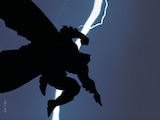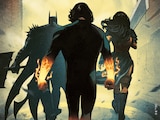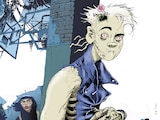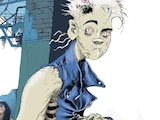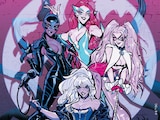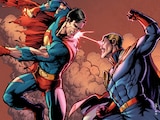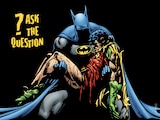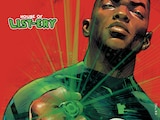June might be Pride Month, but that doesn’t mean the celebration has to end on July 1st. Pride is more than a page on the calendar, it’s about affirmation and celebration. That very same spirit—one of boldly embracing that which makes you unique and special—is also regularly embodied on the DCTV series Doom Patrol. If you’ve never watched an episode of the HBO Max series, trust me when I say it’s a yearlong Pride celebration.
Doom Patrol as a show is super-duper, no-holds-barred, unequivocally gay. And that's no hyperbole. There are coming out stories, drag queens and a genderqueer sentient street—and that’s just in the season one episode “Danny Patrol.” The entire series is about accepting who you are and pushing back against anyone who would silence you or force you to conform. When the world calls you a freak, ignore the haters and love yourself.
Any conversation about Doom Patrol and Pride Month has to involve Danny the Street. Or Danny the Brick, or Danny the Tire, or Danny the Ambulance. What can I say, Danny loves reinvention? When we meet them in season one, Danny is a genderqueer sentient street and life there is a constant party, with music, bright colors and a general spirit of love. People come from all over the world to celebrate with Danny, and the sentient street acts as an encouraging den parent to anybody who needs their love. That support proves to be a powerful aid to anyone who might be struggling with their identity.
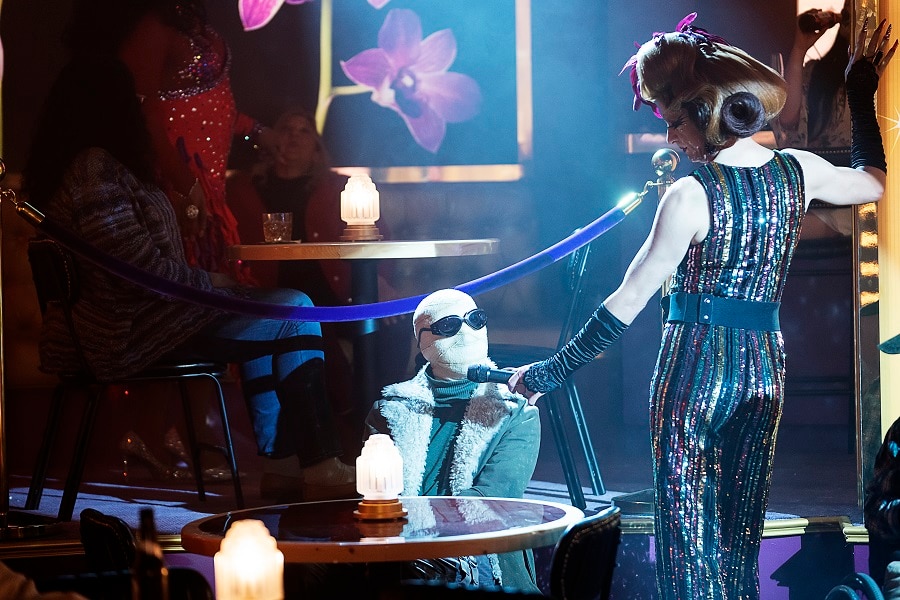
Take a look at Maura Lee Karupt. The fabulous drag queen was once known as Morris Wilson, an agent for the show’s destructive Bureau of Normalcy. Maura Lee was not happy as Morris, and she didn’t have the courage to find her true self until she set foot on Danny. The atmosphere was intoxicating, and for once Maura Lee felt free to be who she really was. As a result, she abandoned the Bureau, left her life as Morris Wilson behind and ran off with Danny. Morris Wilson was an unhappy agent, but Maura Lee Karupt is confident, proud and a fabulous karaoke singer.
As their name implies, the Bureau of Normalcy doesn’t like anything they deem different, and that includes genderqueer sentient streets. When they catch up with Danny, Maura Lee is reunited with her old commanding officer Darren Jones.
“What the hell has this abomination done to you?” Jones asks.
“Danny didn’t do anything except help me realize who I really am,” Maura Lee replies.
“No, this is not who you are Morris,” says Jones. “You’re a man.”
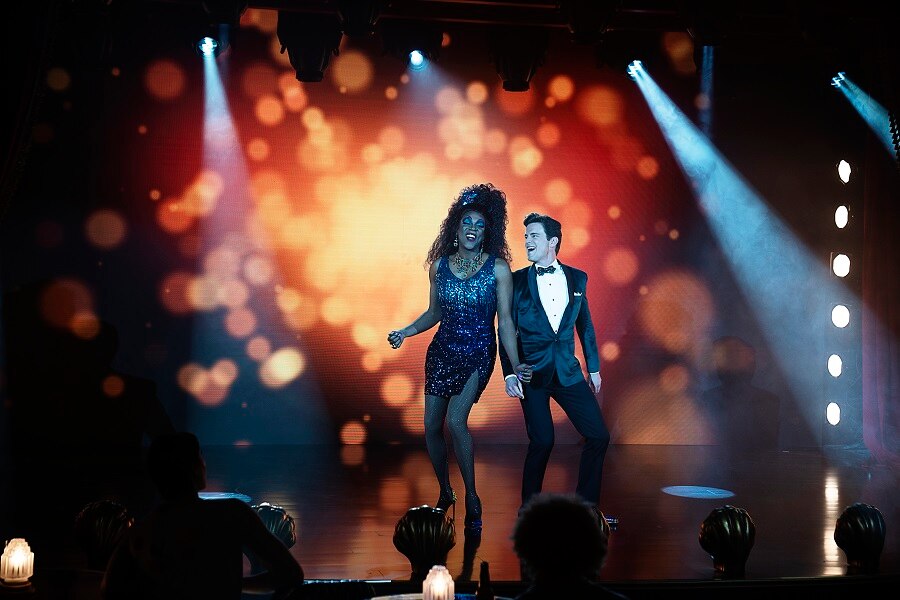
This is a conversation that is all too familiar for people in the LQBTQIA+ community, particularly striking home for anyone who identifies as trans. Darren Jones might not be Maura Lee’s parent or family member, but he’s echoing the talking points queer youth hear from homophobic authority figures. First Jones tries to pin Maura Lee’s transformation on Danny, implying that she was corrupted. Then Jones ignores Maura Lee, deadnames her and tells her she is wrong about her own identity. It’s disgusting and it’s something queer people face regularly.
Maura Lee is not going to be bullied, though.
“No, you don’t get to tell me or anyone else who they are ever again,” she proudly states. “I am proud of the person I see in the mirror. My face is beat, my look is flawless, and I am dusted from head to toe. The only thing I’m not is scared of you.” She then kicks Darren’s ass, which was a pretty satisfying moment.
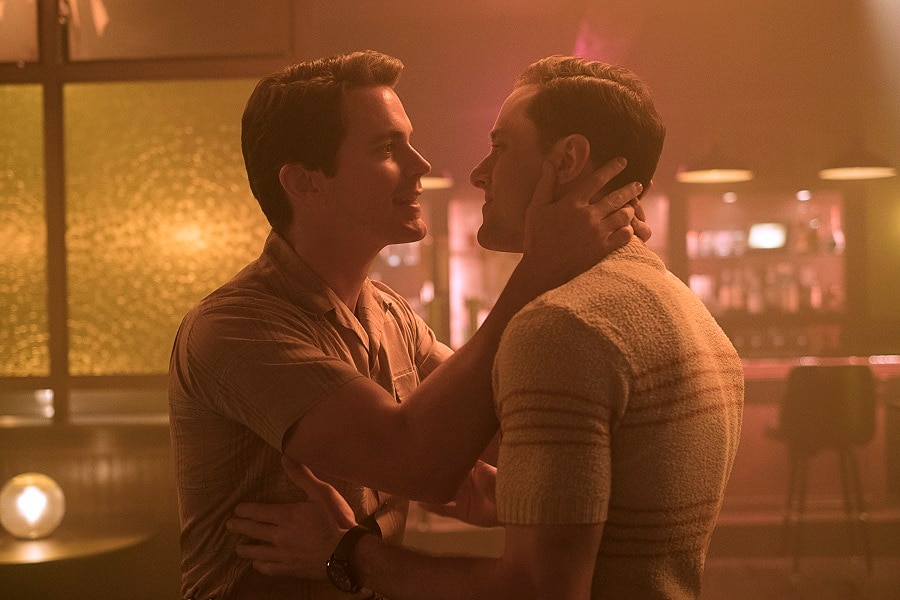
Larry Trainor (aka Negative Man) is another character with an incredible journey of self-discovery. (I previously did a deep dive on Larry’s evolution for Pride Month in 2019.) When the series begins, Larry is a closeted gay man who’s given up on himself. When he discovers Danny, the sentient street and Maura Lee try to get him to come out of his shell, but he isn’t ready to love himself. Larry eventually comes to terms with his complicated symbiosis with the Negative Spirit, and finally gets closure on his failed romance with John Bowers. Everyone’s journey is different, and although Larry didn’t find himself as quickly as Maura Lee did, he’s now at peace.
Maura Lee returned to dispense more wisdom in the season two episode “Sex Patrol.” At the time, Danny had been transformed into a brick and the brick had been damaged. To help, Maura Lee and the other citizens of Danny (they like to be called “Dannyzens”) throw a massive party, hoping the spirit of the event would heal their old friend.
Yes, Doom Patrol can get a bit weird at times, but who doesn’t love a good party? During the celebration Cyborg, opens up to Maura Lee about some problems with his love life.
“Life is short, Vic,” she tells him. “Go where you feel loved. And if that love is consistent stay. Now come on, live in the spirit of Danny.”
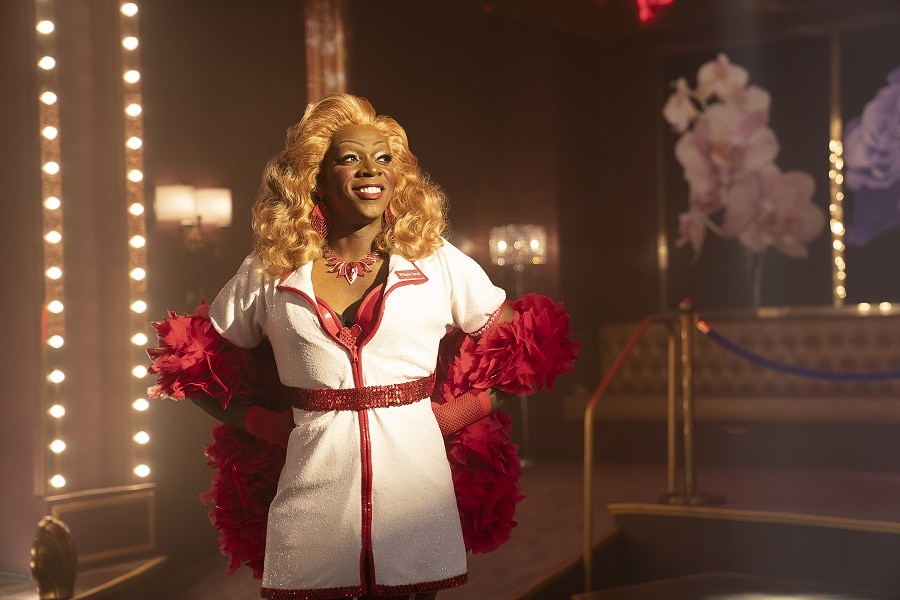
Those are great words to live by, but just what is the spirit of Danny?
It’s when you reject oppression and embrace love. That’s what Maura Lee Karupt did when she told off Darren Jones. When you let go of self-loathing and celebrate yourself, you’re living in the spirit of Danny. That’s what Larry Trainor did when he decided to stop lying about his sexual identity. The spirit of Danny means celebrating your differences. Don’t be afraid to be a freak.
That’s something Elasti-Woman, Cyborg, Negative Man, Robotman and Crazy Jane have all learned to do over the course of the series, and while they’re all still works in progress, they’ve come a long way. Seriously, compare the first episode of season one with the season three finale. You might be surprised to see the difference. The team once lived in despair, feeling shame over their identities and hiding away from society. Now they celebrate their freakiness and they’re proud of who they are.
They’re all living in the spirt of Danny, and that spirit lives on, long after Pride Month has ended.
Stream the first three seasons of Doom Patrol right now on HBO Max. Look for Doom Patrol's fourth season to debut later this year.
Joshua Lapin-Bertone writes about TV, movies and comics for DCComics.com and writes our monthly Batman column, "Gotham Gazette." Follow him on Twitter at @TBUJosh.
NOTE: The views and opinions expressed in this feature are solely those of Joshua Lapin-Bertone and do not necessarily reflect those of DC Entertainment or Warner Bros.

